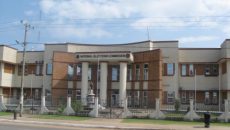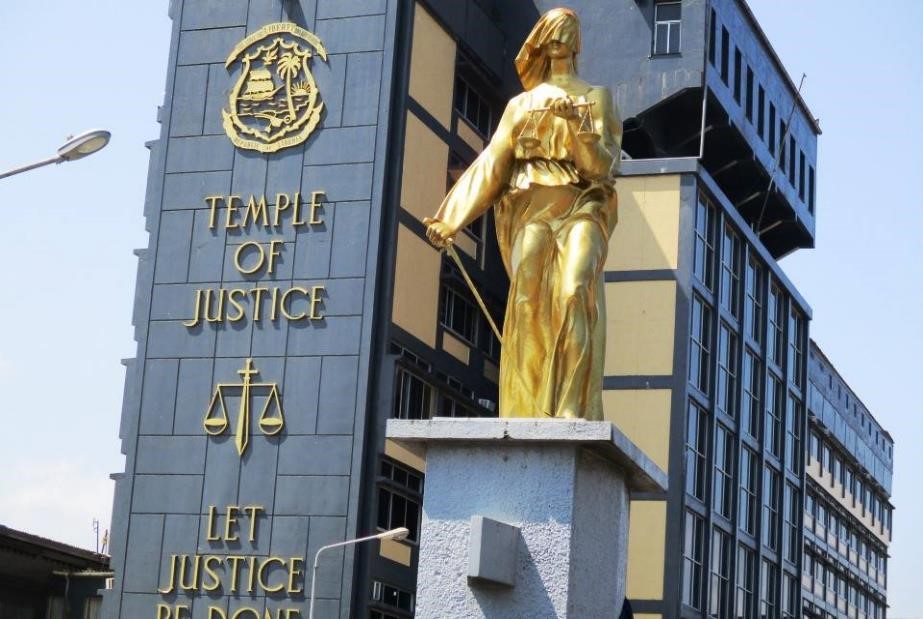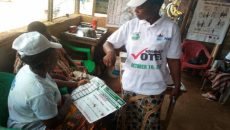MONROVIA, Montserrado – The European Union Election Observation Mission has released its preliminary findings on the October 10 presidential and representative elections in Liberia.
Presenting the statement during a press conference held in Monrovia on Thursday, the mission’s chief observer, Maria Arena, described the polls as “calm and adequately conducted by the National Elections Commission.â€
Arena, who is also a member of the European Parliament, said before polling day, political campaigning activities were nearly entirely peaceful.
She said the E.U. team of elections observers also saw the turn out by voters as overwhelming.
“Liberian voters have shown their strong desire to be part of the democratic process by participating in great numbers to the polls,†she said.
She encouraged political parties and NEC to ensure that the will of the voters is reflected when the election results are announced.
The mission said the effort of local and national observers indicated a collective commitment to ensuring transparency in the elections.
In mid-September, the E.U. deployed a group of 20 long-term observers to different parts of the country to follow the electoral preparations and campaigns. The team, along with its deputy chief observer, Alessandra Parziale, arrived in the country on August 31, with a core team of analysts, which included experts in a variety of background including law, human rights and gender, finance, and media.
Days ahead of the polls on Tuesday, the mission also deployed an additional number of observers.
In line with Arena’s earlier disclosure that the E.U. team of observers could not be at every voting center in the country due to its limited size, she said the mission covered 297 of the 5,390 total polling stations in the country.
“Our 81 E.U. election observers reported from over 297 polling places in rural and urban areas in all counties,†she said.
She also maintained that the outcome of the elections would be left with the country and its national institutions, including the National Elections Commission and Supreme Court of Liberia.
She had disclosed earlier that the E.U. mission would not validate or certificate results of the election.
Although the mission described the campaign season as calm, it said it observed the use of state resources to the advantage of candidates from the incumbent party and a generally uneven playing field for candidates. It said while access to media was granted, there was no free airtime on the state broadcaster.
“Access to media and possibility to campaign ultimately depended on financial wealth, something that created unequal chances for candidates, and especially female ones,†the statement read.
The international observation mission spoke strongly against the “imbalanced coverage†provided by the state-owned broadcaster, ELBC, and a media sector reliant on political sponsorship, or politically aligned through direct ownership by candidates or their supporters. It said the situation affected the right of access to media by some candidates with less financial means.
“The absence of provision for free airtime in the state broadcaster contributes to unequal treatment of political parties and candidates,†it stressed.
The E.U. Observer Mission also observed that voters on election day faced long waiting times, and undue aggravations in finding their polling place, ultimately resulting in frustration and tension that potentially forced some of them to forfeit their right to vote.
“Due to inconsistent training for polling personnel, late divulgation of polling procedures, and insufficient guidelines for queue control, the voting process was very slow,†it emphasized, noting that simple remedies and solutions could be employed to avoid those cases.
At the same time, while the country’s legal framework is broadly in line with its international and regional treaty obligations and constitutes an adequate basis for the conduct of democratic elections, the mission said a restrictive definition of citizenship, which disenfranchises many persons born in the country, does not accord with the country’s international legal obligations.
It said improvements in the law could serve to ground a more coherent and comprehensible legal framework.
It disclosed that while there has been a mediation of a limited number of disputes so far during the election process, and Supreme Court decisions positively contributed to inclusivity of candidacies, outcomes may have come at some reputational expense as many stakeholders alleged the court had been politicized.
Amid the logistical difficulties faced by NEC due to poor infrastructure and adverse weather conditions, the observer mission said the commission in some cases did not effectively communicate its decision to stakeholders, thus creating controversies and criticisms.
“Similarly, late preparation of key guidelines on tallying of results and a lack of consistency in the training of polling officials resulted in the non-uniform application of procedures during and after the vote,†the report also highlighted.
Registering of voters in the absence of a comprehensive and reliable framework by the commission, the E.U. observers pointed, indicated gaps, that resulted in cases of voters not being found in the Final Registration Roll both during the exhibition period and on the day of the elections.
On the law limiting campaign resources, the mission said NEC lacks the capacity and expertise for effective implementation. Contestants had limited interest in submitting complete and accurate financial reports, the observers noted.
The E.U. mission also observed that many candidates failed to articulate concrete policy proposals, thus depriving the electorate of a genuine issues-based choice.
According to the mission, the ineffectiveness of the legal provision that political parties ‘shall endeavor’ to have no less than 30 percent of each gender among both governing bodies and candidates plus the absence of timely training and the lack of funds needed for running a campaign significantly limited potential women candidatures.
The observer mission concluded that, while procedures to facilitate the participation of persons with disabilities were put in place in over two-thirds of Polling Places visited by its observers, delays in procuring tactile ballot sleeves and the late provision of training in their use negatively affected their employment on Election day.
Featured photo by Gbatemah Senah



